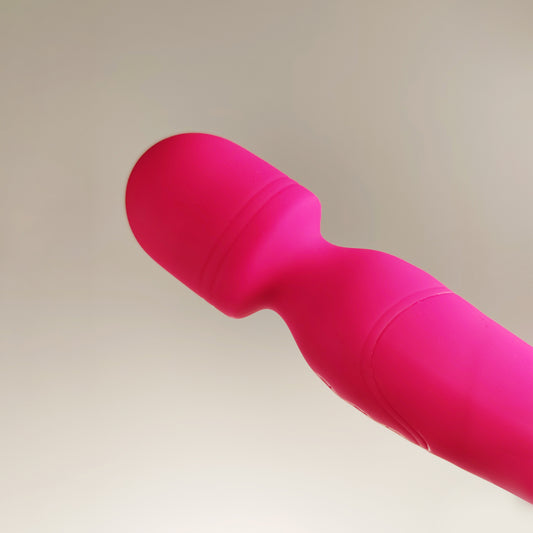
Extend Pleasure: The Key to Lasting Sexual Satisfaction
Share
Understanding the Factors that Affect Male Sexual Performance and Duration
Sexual performance, especially the duration of sexual intercourse, is a common concern for many men. Whether it’s about lasting longer to enhance pleasure for both partners or dealing with issues like premature ejaculation, understanding the underlying factors that influence male sexual performance is crucial. These factors range from physical health and mental state to the environment and emotional connection. This article delves into the most significant elements that determine sexual duration, while also providing practical solutions to help men improve their stamina and sexual satisfaction.
1. Physiological Factors Affecting Sexual Duration
Male sexual performance, including the ability to last longer, is heavily influenced by physiological factors. These factors often include hormonal levels, overall health, and specific bodily functions that impact sexual performance.
1.1 Testosterone Levels and Sexual Performance
Testosterone is the primary male sex hormone and plays a critical role in regulating sex drive (libido) and sexual performance. Low levels of testosterone can lead to a reduction in sexual desire and a decline in performance, including a decrease in the duration of sexual activity.
Solution:
- Regular Exercise: Engaging in regular physical activity, particularly strength training and cardio, has been shown to boost testosterone levels naturally.
- Balanced Diet: Eating a diet rich in healthy fats, proteins, and vitamins (such as Vitamin D and Zinc) can also help maintain healthy testosterone levels.
- Medical Consultation: If testosterone levels are abnormally low, consulting a healthcare provider for possible treatments, including testosterone replacement therapy, might be necessary.
1.2 Blood Circulation and Erectile Function
Blood circulation plays a crucial role in achieving and maintaining an erection. Poor circulation can lead to erectile dysfunction (ED), which directly affects sexual performance and the ability to last longer in bed. Conditions like high blood pressure, diabetes, or obesity can damage blood vessels, reducing the flow of blood to the penis and impeding sexual function.
Solution:
- Improving Cardiovascular Health: Regular cardiovascular exercises such as running, swimming, or cycling improve blood circulation and erectile function.
- Weight Management: Maintaining a healthy weight reduces the risk of developing conditions like high blood pressure and diabetes that can impair blood flow.
- Medical Treatment for ED: For men with erectile dysfunction, medications like sildenafil (Viagra) or tadalafil (Cialis) can temporarily improve erectile function, although lifestyle changes are crucial for long-term health.
1.3 Pelvic Floor Muscles and Ejaculation Control
The pelvic floor muscles, which include the pubococcygeus (PC) muscles, play an essential role in sexual performance. These muscles help control ejaculation and influence orgasm intensity. Weak pelvic muscles can lead to premature ejaculation (PE) or difficulty achieving orgasm.
Solution:
- Kegel Exercises: Strengthening the pelvic floor muscles through Kegel exercises can significantly improve control over ejaculation. By practicing these exercises regularly, men can gain better awareness and control during sex.
- Muscle Relaxation Techniques: Ensuring that the pelvic muscles are not too tense during intercourse helps in extending sexual duration. This can be done through conscious relaxation exercises during intimacy.
2. Psychological Factors Affecting Sexual Duration
While physical health is essential for sexual performance, psychological factors also play a significant role in determining how long a man can last during sex. Anxiety, stress, and emotional well-being all contribute to sexual stamina and overall sexual satisfaction.
2.1 Performance Anxiety
Performance anxiety is one of the most common psychological factors affecting sexual duration. The fear of not meeting a partner's expectations or failing to perform can trigger nervousness, which often results in premature ejaculation or a lack of stamina. This anxiety causes the sympathetic nervous system to be activated too early in the sexual response cycle, leading to a rapid climax.
Solution:
- Relaxation Techniques: Learning how to relax during sex through mindfulness, deep breathing, and progressive muscle relaxation can alleviate anxiety and help men last longer.
- Cognitive Behavioral Therapy (CBT): CBT is an effective therapeutic approach for men dealing with performance anxiety. It helps address negative thought patterns and build confidence in sexual performance.
2.2 Stress and Mental Health
General stress and mental health issues, including depression or anxiety disorders, can also negatively impact sexual performance. Chronic stress leads to the release of cortisol, a hormone that can lower libido and disrupt sexual function. Additionally, stress often reduces one's ability to relax and fully enjoy the sexual experience, leading to shorter sexual encounters.
Solution:
- Stress Management: Engaging in regular stress-relieving activities like yoga, meditation, or journaling can help reduce overall tension and improve sexual performance.
- Therapy or Counseling: Seeking professional help for stress management or underlying mental health issues can make a significant difference in sexual well-being.
2.3 Emotional Connection and Intimacy
The emotional connection between partners plays a critical role in sexual performance. When men feel emotionally connected, supported, and loved by their partners, they tend to experience less performance pressure and are more likely to last longer. Emotional intimacy helps reduce anxiety and fosters relaxation, contributing to a more fulfilling sexual experience.
Solution:
- Open Communication: Couples should engage in open, honest communication about their sexual needs and desires. This transparency fosters trust and helps create a relaxed sexual environment.
- Quality Time Together: Strengthening emotional intimacy outside of the bedroom through activities like cuddling, sharing interests, and bonding time increases feelings of closeness and support during sex.
3. External and Environmental Factors
In addition to physiological and psychological elements, environmental factors can also impact sexual performance. These external influences can either enhance or detract from sexual stamina.
3.1 Sexual Stimulation and Overstimulation
The level of sexual stimulation during intercourse can significantly affect how long a man lasts. Excessive physical stimulation can lead to premature ejaculation, while insufficient stimulation can result in a lack of arousal and reduced sexual performance.
Solution:
- Adjusting Stimulus: Finding the right balance of physical stimulation can help. Couples can experiment with different rhythms, positions, or sensory inputs to identify what is most comfortable and pleasurable for both partners.
- Sensory Awareness: Practicing mindfulness techniques to become more attuned to sensations in the body can help men better control their arousal and delay ejaculation.
3.2 Sexual Positions
The sexual position can also influence a man's ability to control ejaculation. Some positions provide greater control, while others may cause too much stimulation, resulting in quicker orgasms. For example, positions that allow deeper penetration or greater movement of the pelvic muscles might contribute to quicker ejaculation, while positions that offer less stimulation can help prolong intercourse.
Solution:
- Experiment with Positions: Trying different positions, such as "woman on top," or "side-by-side," where men have more control, can help extend the duration of sex.
- Breaks and Adjustments: Taking short breaks during intercourse or adjusting the angle and rhythm can help men delay ejaculation.
3.3 A Relaxed Environment
A stressful or uncomfortable environment can inhibit sexual performance. A relaxed, intimate setting helps both partners feel more at ease, which in turn allows them to enjoy the experience and last longer. Factors such as lighting, noise levels, and the overall comfort of the space can affect how relaxed a person feels.
Solution:
- Create a Comfortable Space: Setting up a comfortable and private environment for intimacy, with soft lighting, soothing music, and minimal distractions, helps create the right atmosphere for longer-lasting sex.
- Eliminate Performance Pressure: Couples should aim to take the pressure off each other and focus on enjoying the moment, rather than worrying about performance.
4. Solutions for Lasting Longer in Bed
While many factors contribute to sexual duration, the most effective way to improve lasting power is through a combination of physical, psychological, and environmental adjustments.
- Regular Exercise and a Healthy Lifestyle: Staying physically active and eating a balanced diet plays a foundational role in improving overall sexual performance.
- Relaxation and Breathing Techniques: Learning to relax and control one's breath during sex can help delay ejaculation.
- Psychological Support: Addressing performance anxiety, managing stress, and improving emotional intimacy through communication and shared experiences are crucial for enhancing sexual stamina.
- Experimentation and Awareness: Exploring different sexual positions, techniques, and understanding personal preferences and boundaries help both partners maintain a satisfying sexual experience.
5. Solutions from a Female Perspective: How Women Can Support Their Partners
As a woman, understanding the factors that affect male sexual performance is crucial for fostering a healthy, intimate relationship. When it comes to helping your partner last longer in bed, empathy, communication, and support are just as important as the physiological and psychological solutions mentioned earlier. By providing the right emotional and practical support, you can enhance his confidence, reduce anxiety, and create a more enjoyable and lasting sexual experience for both of you.
5.1 Understanding Your Partner's Needs and Challenges
The first step in helping your partner is understanding the various factors that affect his sexual performance. Male sexual stamina is influenced by both physiological and psychological factors, which are not always easy for men to talk about. Women who are empathetic and non-judgmental can create a supportive environment for their partners to feel safe in expressing their concerns.
Key Points to Understand:
- Performance Anxiety: Many men experience pressure to perform well during sex, leading to anxiety and premature ejaculation. Understanding that performance anxiety is a common issue can help you be more patient and supportive.
- Physical Health: Health conditions like high blood pressure, diabetes, or even lack of physical fitness can negatively affect sexual performance. Encouraging your partner to maintain a healthy lifestyle can be an indirect but powerful way to support his sexual health.
- Emotional Connection: A strong emotional bond can alleviate much of the anxiety that may arise during sex. Men who feel emotionally secure and connected with their partner tend to last longer in bed.
How to Help:
- Be patient and listen to your partner’s concerns about performance without judgment.
- Offer reassurance and show understanding if he feels anxious or stressed. Reassure him that sex is about mutual enjoyment, not just performance.
- Encourage regular health check-ups and healthy lifestyle habits, which will not only improve his sexual performance but also his overall well-being.
5.2 How Women Can Help Relieve Performance Anxiety
As performance anxiety is one of the major factors that contribute to premature ejaculation, women can play an instrumental role in helping reduce this stress. The key is creating a safe, non-judgmental, and loving environment in which your partner can relax and enjoy the experience without worrying about "lasting long enough."
Strategies for Supporting Your Partner:
-
Create a Relaxing Atmosphere: Make the sexual experience feel relaxed and stress-free. Dimming the lights, playing soothing music, and ensuring privacy can all reduce distractions and create a calm atmosphere that encourages relaxation.
-
Reaffirm Emotional Connection: Strengthen your emotional bond by sharing intimate moments outside of sex. This can include simple acts of affection such as cuddling, kissing, and verbal expressions of love. When men feel emotionally safe and valued, they tend to perform better sexually.
-
Praise and Encouragement: Compliment your partner during and after sex. Reassure him that he is doing great and that the experience is fulfilling for both of you. This not only boosts his confidence but also shifts the focus away from performance and onto mutual pleasure.
-
Non-Verbal Communication: Sometimes, words can add pressure. Use non-verbal cues such as a gentle touch, deep eye contact, or affectionate gestures to reassure him and keep the experience intimate and relaxed.
5.3 Helping Your Partner with Psychological Support
Psychological stress, including stress from work, family, or other aspects of life, can negatively impact sexual performance. Helping your partner manage stress can go a long way in improving his sexual stamina.
How to Support Your Partner’s Mental Well-Being:
-
Encourage Stress Relief Activities: Encourage your partner to engage in activities that help relieve stress, such as yoga, meditation, or even light physical exercise. A calm mind leads to better sexual performance.
-
Foster Open Communication: Discuss openly the emotional and psychological challenges that both of you may be facing. Sometimes, men may struggle to express their feelings, especially about sex. Creating a space for these conversations can help reduce feelings of pressure and build stronger emotional intimacy.
-
Be Understanding of His Mental State: If your partner is stressed, it may affect his libido and ability to perform. Show empathy towards his mental state and be patient if he's not feeling up to sex.
5.4 Physical Support: How to Adjust Your Approach
While men are primarily responsible for controlling their own bodies during sex, women can help in subtle but powerful ways to prolong sexual encounters. A woman's approach to intimacy can influence how relaxed and connected both partners feel during sex, which impacts sexual duration.
How You Can Help:
-
Slow Down the Pace: During intercourse, you can help slow the rhythm if you feel he’s getting close to climaxing. Try pausing for a moment, changing positions, or even just adjusting the pace to help him regain control.
-
Use Positions That Provide Control: Certain positions, like the "woman-on-top" position, allow men to control the depth and pace of penetration, which can help delay ejaculation. Alternatively, positions where the woman is more passive (e.g., missionary) might allow the man to control his excitement better.
-
Encourage Breathing Techniques: While it’s difficult for men to focus on relaxation during intercourse, you can guide him to slow down and focus on deep breathing. Breathing exercises can help lower arousal and provide more control over ejaculation.
-
Be Attuned to His Body: Notice when your partner is getting close to orgasm. If you see signs of him reaching climax too quickly, gently pause or slow things down to help him regain control. Non-verbal cues like light caresses or whispered words can make the transition smoother.
5.5 Improving Your Own Sexual Confidence and Connection
The ability to help your partner last longer in bed is closely related to your own sexual confidence and understanding. When you feel confident and secure in your own sexuality, you are more likely to create an environment where your partner feels comfortable and relaxed.
Ways to Boost Your Own Confidence:
-
Explore Your Own Sexuality: Learn what you enjoy and what makes you feel confident in your own body. When you’re comfortable with yourself, it helps foster a more relaxed, enjoyable sexual environment.
-
Open Communication about Needs: Having open conversations about what works for both of you, what you like or don’t like, helps improve mutual understanding and reduces performance pressure.
-
Be Patient and Understanding: In any sexual relationship, there will be times when things don’t go as planned. Be patient with yourself and your partner as you work together to find what works best for both of you.
6. Conclusion: A Team Approach to Lasting Pleasure
Helping your partner last longer in bed involves a combination of understanding, communication, and shared effort. By addressing the psychological, emotional, and physical aspects of the issue, women can play a key role in improving their partner’s sexual performance. Creating a supportive, loving environment, offering stress relief, and experimenting with different sexual techniques can lead to longer, more fulfilling sexual experiences.
In the next lessons, we will dive deeper into specific techniques, such as breathing exercises, pelvic floor exercises, and sexual positions, to help both of you improve sexual performance and enjoy longer-lasting intimacy. Until then, remember that building a strong emotional and physical connection is the foundation for lasting pleasure.
Summary of Key Takeaways for Women:
- Create a Safe and Relaxed Environment: Reduce stress and anxiety for your partner by fostering a calm and supportive atmosphere.
- Open Communication: Encourage open dialogue about sexual needs and emotional concerns to reduce performance pressure.
- Help Manage Stress: Encourage your partner to practice stress-relief activities to improve overall sexual health.
- Adjust Your Sexual Approach: Use slower rhythms, mindful positioning, and breathing exercises to help him maintain control.
- Build Confidence Together: Confidence in your own sexuality and a mutual understanding will improve the sexual experience for both partners.








